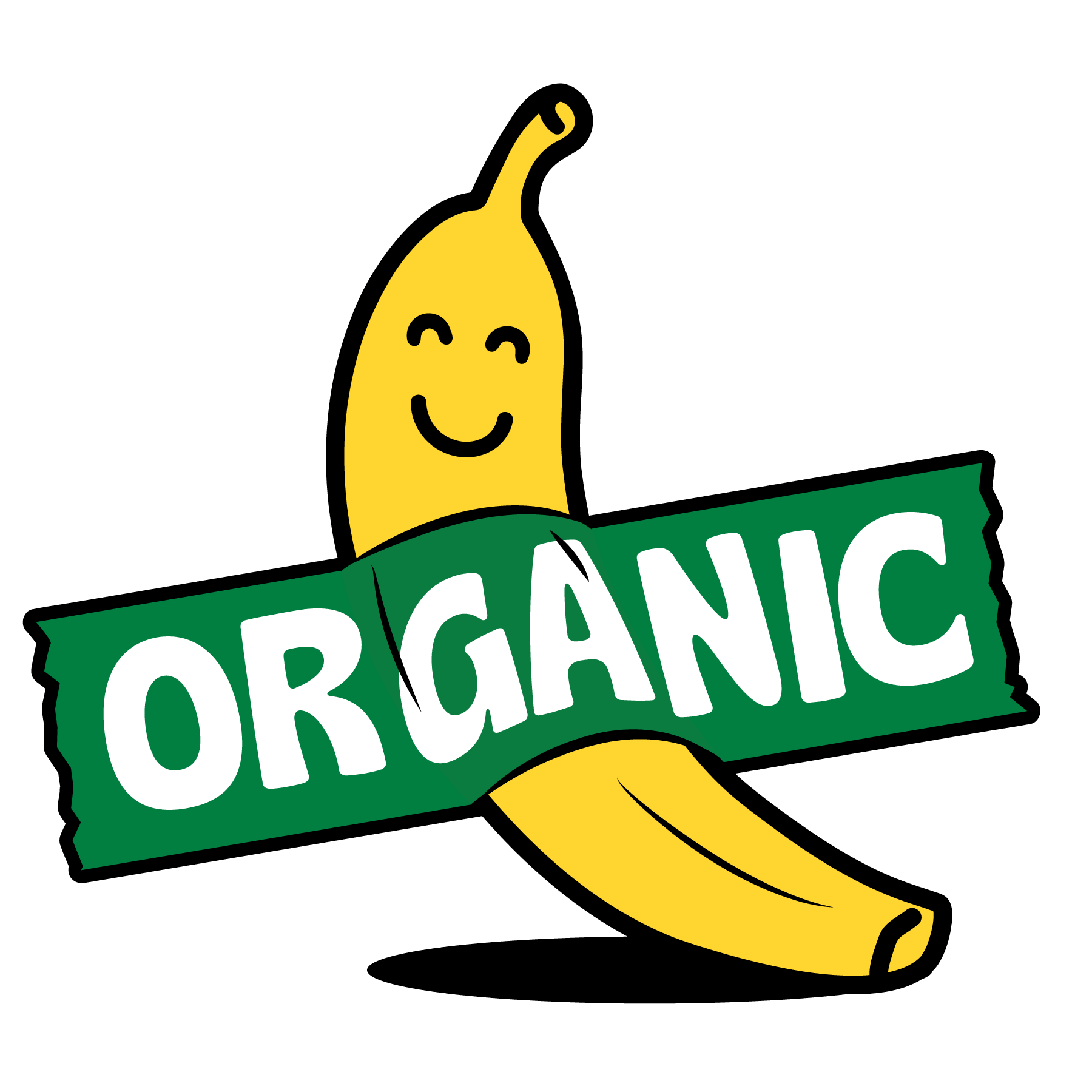ABOUT OUR BRAND
To us, social responsibility and the lowest possible ecological footprint are a top priority. We see taking care of the health of the planet as implicit, not a choice. We care for our planet; we don’t do shortcuts. The earth provides and we let her do exactly that, without intervening where there is no need to.
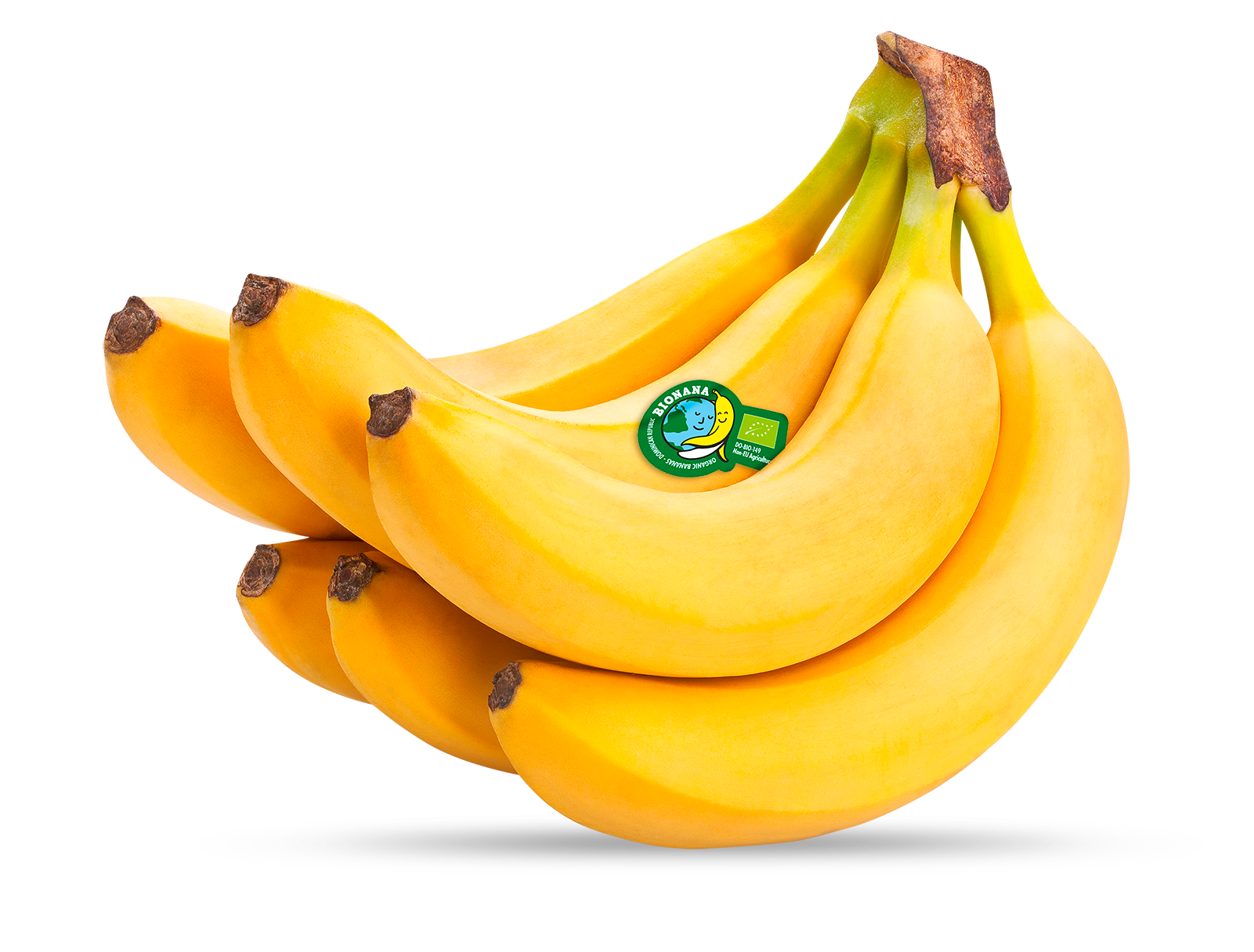
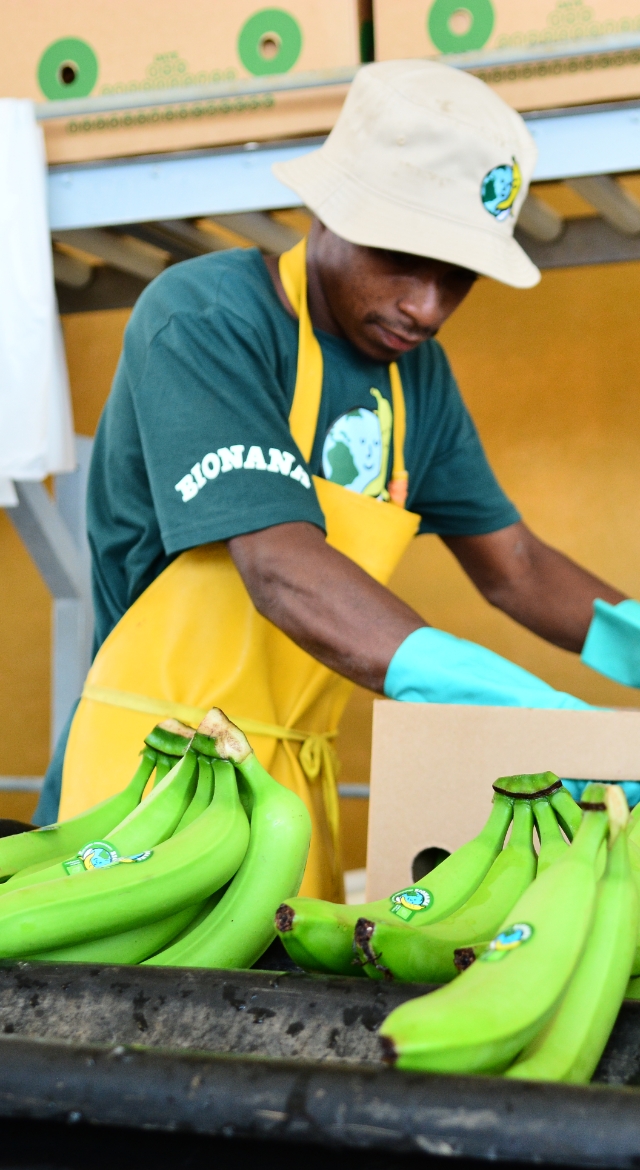
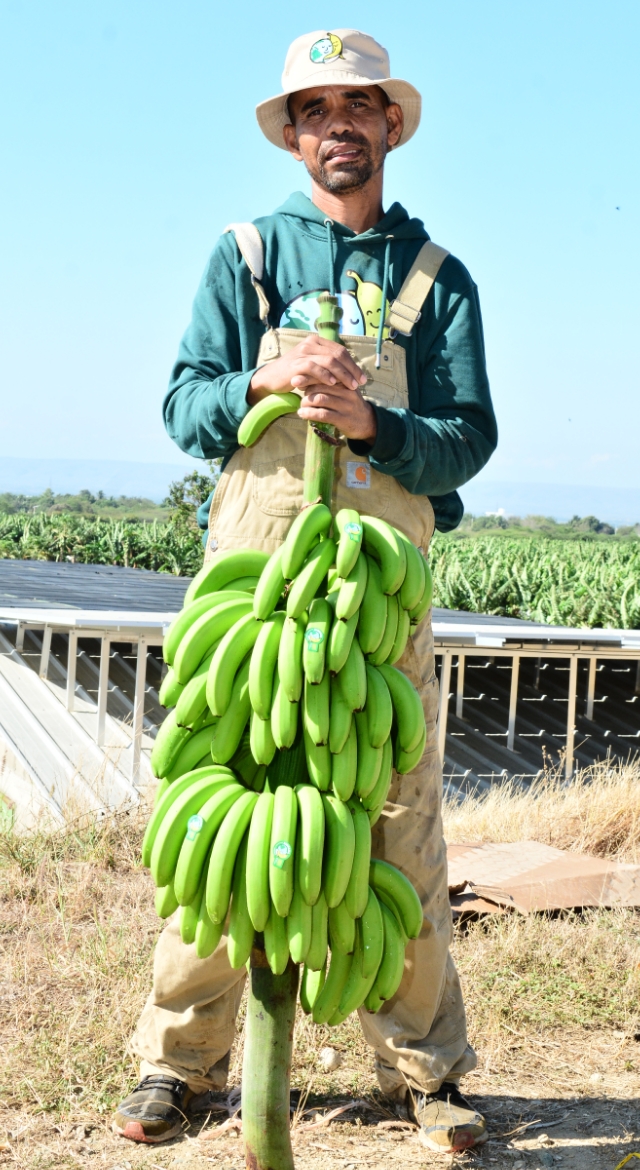
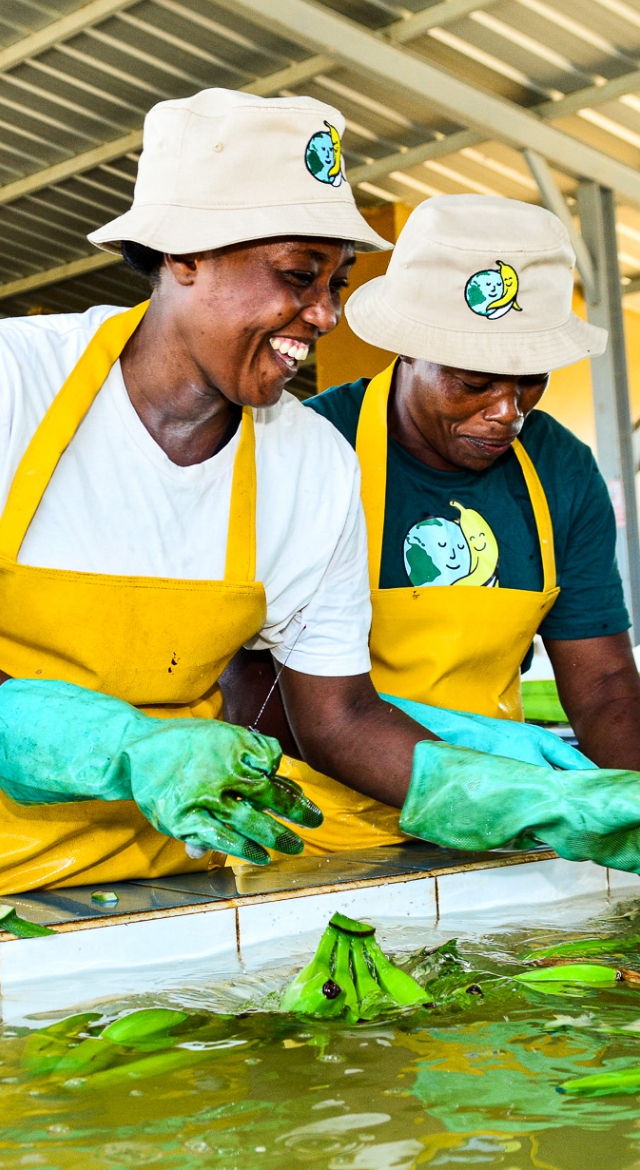
WE LIKE TO KEEP OUR LINES SHORT
This way, every link of the chain receives the right value for the work produced, and together, we are always on top of quality. This short chain, from plant to store in 24 days, means we can supply bananas as fresh as possible and also all year round! The Dominican Republic is located on the equator, so there are warm tropical conditions all year round and sufficient light.
DAY 1
HARVESTING
BANANAS
After the harvest the banana is packed by the farmer
DAY 2-3
HARVESTING
AND PACKING BANANAS
All pallets are being collected to fill up the vessel
DAY 3
PORT OF
DOMINICIAN REPUBLIC
The producer drops us of at the port of the Dominician republic
DAY 12
ON OUR WAY
TO EUROPE
We continue our journey on a vessel towards Europe
DAY 12
ARRIVING AT THE PORT OF ROTTERDAM
After our boat trip we arrive at the port of Rotterdam
DAY 12-20
RIPENING
CENTER
We are then being transported to the ripening center where we transform into peeling yellow bananas
DAY 21
DISTRIBUTED
TO THE SUPERMARKET
We’re almost in your hands! But first we need to start our journey to the supermarket shelves
DAY 22
AVAILABLE
FOR YOU
Tada, there we are, safe and sound in the supermarket available for you
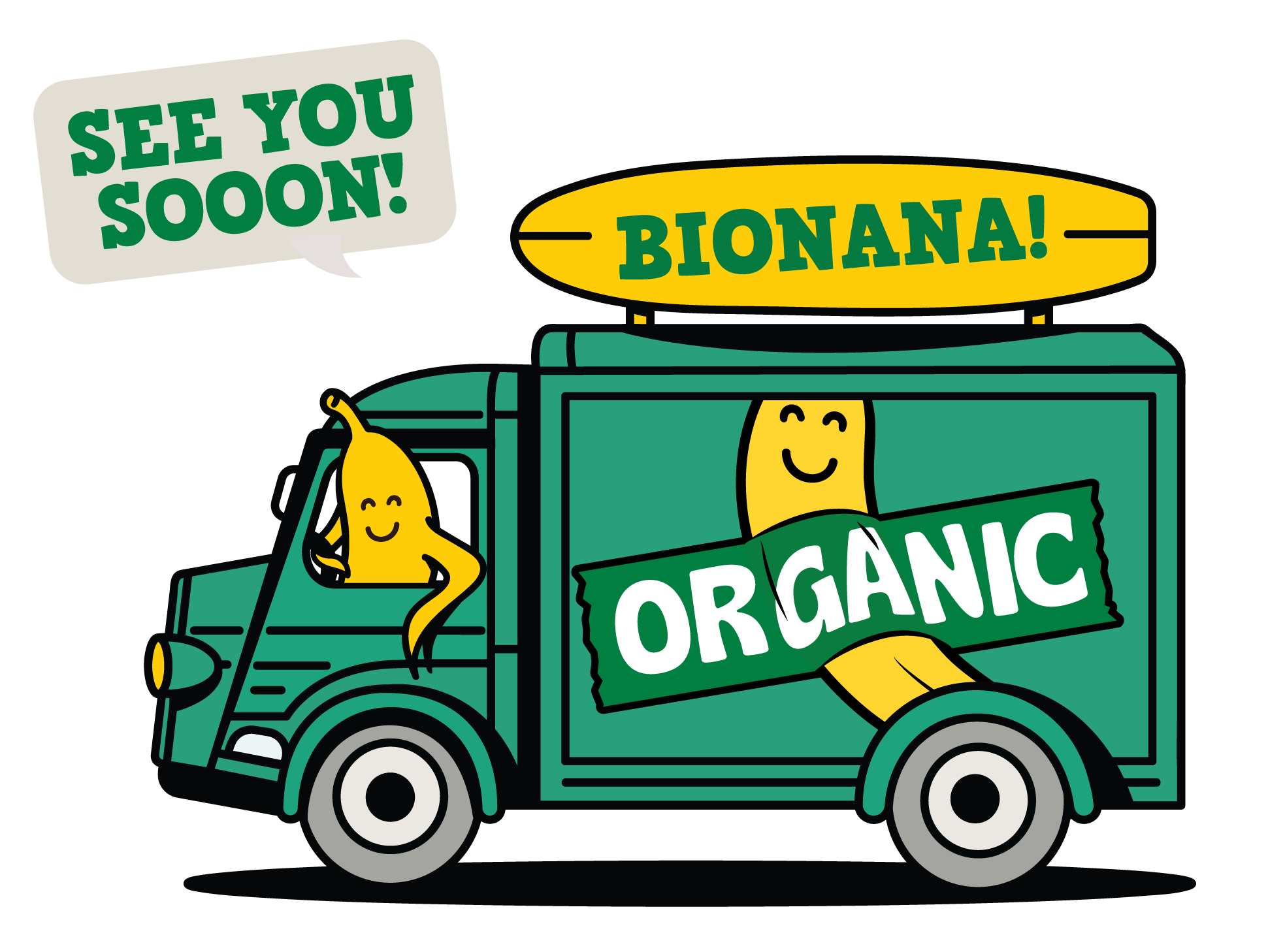

DISCOVER OUR
BIONANA VAN
Experience our green retro bus at festivals and events, where we serve up tasty biologic smoothies. Want to bring the good fibes to your event? Rent our bus now and treat your guests to a taste of sustainability! Click below to learn more.
BIONANA
MERCHANDISE
With our ‘Buy one, Give one’ approach, you will receive a unique and organic Bionana merchandise piece while keeping our dedicated banana growers in the Dominican Republic stylish and comfortable with new working clothes.

DISCOVER OUR
BIONANA VAN
Experience our green retro bus at festivals and events, where we serve up tasty biologic smoothies. Want to bring the good fibes to your event? Rent our bus now and treat your guests to a taste of sustainability! Click below to learn more.

BIONANA
MERCHANDISE
With our ‘Buy one, Give one’ approach, you will receive a unique and organic Bionana merchandise piece while keeping our dedicated banana growers in the Dominican Republic stylish and comfortable with new working clothes.



